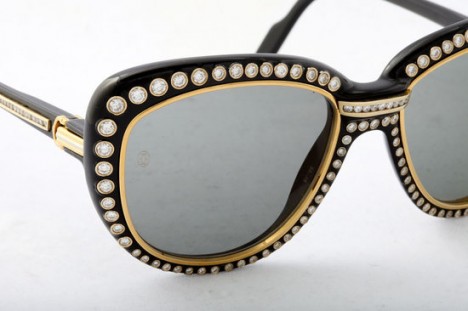Beauty in Diversity/Celebrating Different Cultural Beauty Traditions Around the World
 Introduction:
Introduction:
Beauty has been a source of fascination and admiration across cultures and centuries. However, what society perceives as beautiful has varied greatly throughout history and from one culture to another. Embracing diversity and appreciating different beauty traditions around the world not only enriches our understanding of aesthetics but also promotes cultural exchange and mutual respect. From skincare routines to body art, hairstyles, and fashion, the diverse beauty traditions of various cultures offer unique insights into the rich tapestry of human history and expression.
The Influence of Culture on Beauty:
Culture profoundly influences how individuals perceive and express beauty. The standards of beauty within a culture are often shaped by historical, geographical, religious, and social factors. These standards are transmitted through generations, impacting beauty rituals, adornments, and aesthetic preferences.
In some cultures, specific features are considered more desirable, such as fair skin in many Asian countries or curvier body shapes in some African societies. However, it is essential to recognize that beauty ideals are not universal, and no single standard of beauty should be imposed on all. Instead, celebrating cultural diversity in beauty traditions can foster a more inclusive and accepting global community.
Beauty Traditions Across the Globe:
- Traditional African Beauty: African beauty traditions embrace natural features and adornments that vary across the continent’s diverse ethnic groups. Elaborate hairstyles, body art, and the use of natural products for skincare and haircare are common practices. For instance, in some African tribes, intricate scarification patterns are etched onto the skin, symbolizing cultural identity and beauty.
- Japanese Geisha: Japan’s geisha culture has fascinated people worldwide with its exquisite beauty traditions. Geisha, trained in traditional arts, wear elaborate hairstyles, heavy white makeup, and vibrant kimonos, showcasing grace and sophistication.
- Indian Henna: The art of applying henna (mehndi) has deep cultural significance in India and surrounding regions. Intricate henna designs on hands and feet are part of weddings, festivals, and special occasions, representing joy, beauty, and auspiciousness.
- Korean Skincare: Korean skincare rituals have gained global recognition for their emphasis on self-care and natural ingredients. The multi-step skincare routine, incorporating cleansing, toning, moisturizing, and sunscreen, highlights the value placed on clear and radiant skin.
- Maori Moko: The Maori people of New Zealand practice the art of moko, a traditional tattooing technique. These intricate tattoos on the face and body are considered a symbol of cultural identity and social status, adding to the wearer’s unique beauty.
- Brazilian Carnival: During Brazil’s colorful Carnival celebration, elaborate makeup, body paint, and extravagant costumes are worn by performers and revelers alike. This vibrant display of beauty celebrates joy, sensuality, and the spirit of the Carnival season.
- Moroccan Argan Oil: Moroccan women have cherished argan oil for centuries as a beauty elixir. Extracted from argan trees, this natural oil is used for skincare, haircare, and nail care, reflecting a commitment to organic and holistic beauty.
The Significance of Cultural Exchange in Beauty Traditions:
Embracing and celebrating cultural beauty traditions can break down barriers and foster cultural exchange and understanding. When people from different backgrounds appreciate and value each other’s unique beauty practices, it can lead to a deeper respect for diversity and an acknowledgment of shared humanity.
Cultural exchange in beauty also has economic and social implications. The popularity of traditional beauty practices from one culture in other parts of the world can create opportunities for cross-cultural businesses and collaborations. For example, the global popularity of Korean skincare products has led to a surge in demand for K-beauty brands and products worldwide.
Appreciating diverse beauty traditions can also be empowering for individuals who might have felt marginalized due to non-conformity to mainstream beauty standards. Celebrating and showcasing different cultural aesthetics can promote body positivity and self-acceptance, helping individuals feel proud of their unique features and cultural backgrounds.
The Role of Social Media and Representation:
In the age of social media and digital connectivity, cultural beauty traditions have gained unprecedented exposure. Influencers, celebrities, and beauty brands are embracing and promoting diverse beauty standards, leading to a more inclusive portrayal of beauty in the media. Representation matters, as seeing individuals from various cultures celebrated for their beauty helps break down stereotypes and narrow beauty ideals.
However, it is crucial to ensure that cultural appreciation does not turn into cultural appropriation. While appreciating cultural beauty traditions, it is essential to respect their cultural and historical significance. Appropriating elements of another culture without understanding or acknowledging their significance can be disrespectful and perpetuate harmful stereotypes.
Conclusion:
Beauty is a deeply personal and culturally influenced concept. The celebration of diverse beauty traditions around the world enriches our global tapestry, promoting mutual respect, understanding, and cultural exchange. By recognizing the uniqueness and value of each culture’s beauty practices, we can challenge narrow beauty standards and embrace a more inclusive and accepting vision of beauty.
As we continue to appreciate and learn from different beauty traditions, it is essential to ensure that our appreciation is grounded in respect and understanding. Through genuine curiosity and a commitment to cultural sensitivity, we can celebrate the beauty of diversity and foster a more interconnected world where all cultures and their unique beauty traditions are valued and appreciated.







